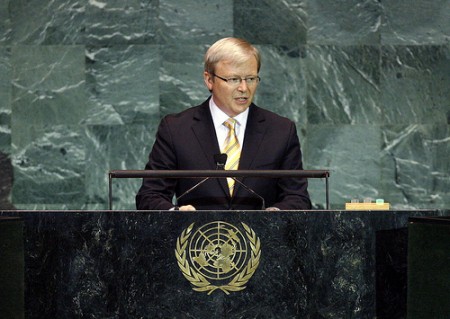
The race for the 2013/14 election for non-permanent seats on the UN Security Council is raging among a group of countries, including several EU countries, Australia, Switzerland, and Turkey.
Luxembourg and Finland are the official EU candidates and enjoy the support of the EU member states and have the advantage of not having been regular UN SC members. Luxembourg was never elected and Finland was elected twice, the last time in 1989-1990. In an attempt to win more votes for the election, the two countries have engaged in ‘cash-diplomacy‘ by increasing their aid money abroad, especially in Africa, amongst countries that form the most influential grouping in the UN General Assembly.
Recently, Australia also declared itself a candidate for the council. Some analyst says that Australia’s chances are low. It already lost against two EU members (Sweden and Portugal) in 1996, it does not have the EU’s support, it entered the race later than its opponents, and is less engaged in a cash-diplomacy than Luxembourg or Finland. According to the Lowy Institute, Luxembourg and Finland respectively gave $137 and $237 million in aid money to Africa while Australia only gave $80 million.
At first glance it seems that Luxembourg and Finland have a better chance to win the race to the UN SC. But if we look a bit more closely, the election might actually be much tighter.
